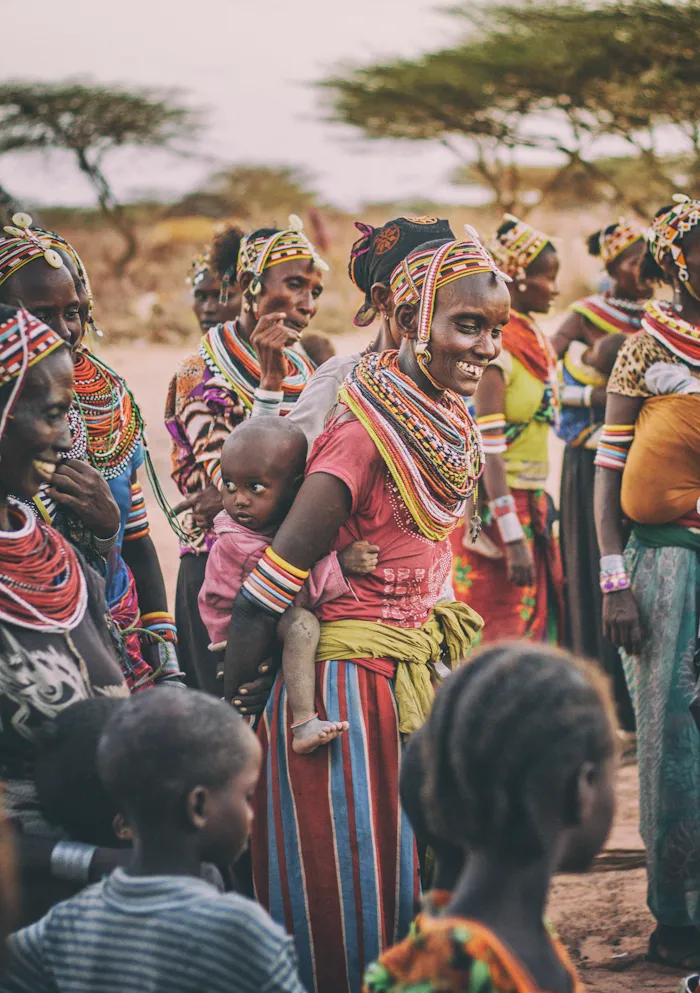
Each tribe wants to uphold its cultural heritage and cherish it by passing it on to the next generation, but what happens when the young generations aren't following in the footsteps laid by the older generation? That's when the problem arises, and this can be difficult to curb.
I belong to the Yoruba tribe, and I can say that my tribe's language is beautiful and pleasant to the ears. That's so because I cherish it. My tribe falls under the western part of the country, and here we have many states that speak the same language as I do and also those that speak languages different from mine.
In my tribe, we are so conscious of our cultural heritage, appreciating our dress, food, ways of addressing people, ways of life, language, and marriage. A typical Yoruba parent will always train his or her child to kneel on both knees to greet his or her elders whenever he or she comes across them.
In the Yoruba tribe, eating healthy is one of the things well-valued, and this is why we have solid food like amala. This food is of two different types: one is made from cassava, popularly known as (lafun, and the other is made from yam, known as (elubo isu. Different states in the Yoruba tribe have one they chose as their favorite, and that's the one they're accustomed to, eaten with different kinds of soup such as okra, jute leaves, popularly known as ewedu, and gbegiri (bean soup).
When it comes to dressing, the Yoruba tribe is known for iro (wrapper), buba (blouse) for females, Sokoto (trouser), dashiki (the upper top or shirt), agbada (the big regalia), and fila (cap) for men. This clothing cannot be underestimated in the Yoruba tribe; it is always part of any Yoruba man or woman's wardrobe.
FINANCIAL HERITAGE
In the olden days of the Yoruba tribe, cowries were a means of financial transactions. It is a whitish stone-like piece used in transacting businesses. Another means of financial transaction was then traded by the batter. This is an exchange of food items or other valuable items for other needed materials. Transactions are always made facially, making them easier as they won't be biased. However, all these means are no longer in use as the country is more civilized and developed. The use of the accepted currency, which is the naira, has overturned the use of cowries.
Financial heritage can be learned from one's parents, which can serve as a pathway for success in life. Financial prudence and management are part of a financial heritage that needs to be upheld at the turn of each generation.
BIOLOGICAL HERITAGE
Sometimes these had to be in connection with heredity and genetics, and I can say I am privileged to enjoy this biological heritage. Many of us are replicas of our parents, and without introducing ourselves, people can guess the son or daughter of whom we are.
Just as I am a mini version of my father, anyone who knows my father doesn't need to ask me who my father is. By mere looking at me, you can easily point out who my father is, and this I enjoyed because it brought me favor.
The only difference you can point out between myself and my father is that I'm female and he is male. I took all his physical characteristics, which make us look like twins, except for the age difference that would tell.
Cultural, financial, and biological heritage is to be cherished because, if not followed, such culture will go into extinction, and this is what everyone is guiding against. Many parents today don't want their children to speak their native language because they believe such children would be inferior to their peers, but that's not true.
Teaching your children to uphold your culture is the best feeling ever. Likewise, some parents don't accept inter-ethnic marriage; they want their children to get married to the same tribe as them. Although there is no crime in that, we should support relating to other tribes to learn from them and also promote the culture.
Here is my entry into #aprilinleo monthly and daily prompts. You can participate via this LINK